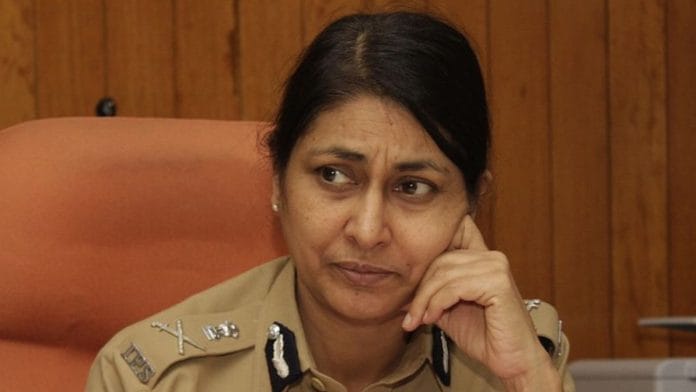Being the divisional headquarters of the Marathwada region of Maharashtra, Aurangabad is
overseen by a senior IAS officer in the role of a divisional commissioner, while a deputy
inspector general of police (DIG) looks after the police range. The post was later upgraded to inspector-general of police (IG). About eight months after my taking over as the police chief, the district was bifurcated: Aurangabad city was converted into a commissionerate and the rest of the district became Aurangabad (Rural) – this separation prevails even today.
One day the DIG who supervised the range police administration sent a notice that he
would be visiting my office. He was a senior IPS officer who had come to some disrepute in the past. I had found him erratic at times but generally cordial. Once he had an argument with his wife. In a fit of anger, he overdosed on some medicine and fainted. His wife rang me up, frantically requesting for medical help but extremely apprehensive about the news leaking out.
We had to ensure the urgent arrival of a local doctor and that the episode would not reach the media. It was an unpleasant domestic issue and we treated it as that.
As the DIG’s visit entails a review of the district police’s operations, we got busy
updating our crime records and listing out our recent initiatives. It took a fortnight of intensive work.
Also read: Neeraj Chopra entered sports to lose weight. Boys would tease him, call him ‘sarpanch’
All local officers, in their impressive uniforms, were present in my office when the DIG arrived. After the reception, he took a seat in my chamber. As per tradition, one by one the local police officers apprised the visiting supervisor of their duties and achievements. From one such officer, the DIG demanded money in a cagey manner, saying, ‘Your cousin has not come to see me in a long time …’ The officer responded to him warily until their conversation turned into a heated argument. All the while I was sitting next to the DIG, understanding the conversation only in bits and pieces.
I finally got it when the officer said, ‘I have sold my wife’s mangalsutra and yet you are not satisfied.’ Now all limits of propriety had been breached, and I confronted the DIG about his intentions. Tersely he replied, ‘It happens everywhere, just not in front of you.’ I was stunned. Corruption among senior police officers had become common by the late eighties but I didn’t know it could be this blatant. I went red with anger. The DIG left my office in a huff.
Immediately after his departure, I dictated a confidential letter describing the entire
incident and had it dispatched to the Director General of Police through a constable. The next morning, the DG called me up to ask if the DIG had said those things in jest. ‘Maybe he was joking?’ the DG suggested tentatively. I had no such illusions and told him that it was humiliating to witness a senior officer ask one of my officers for money in my presence. And that I expected strong action to be taken against him.
In the context of police operations, the recent reshuffle of IPS officers in Maharashtra highlights the ongoing changes within the state’s law enforcement agencies.
The following day, a senior police officer arrived in Aurangabad to conduct a preliminary
inquiry and submitted a report corroborating my letter. Years later he told me that the sub-
inspector from whom the DIG had demanded money had cynically wondered if he, a junior
officer, was being made into a sacrificial goat by three IPS officers! The inquiry officer, the DIG and I were all from the elite service.
Until he was transferred out of Aurangabad, the DIG would harass me at the slightest
opportunity, issuing memos, seeking explanations every single day on one pretext or the other.
Also read: People were keen to give me a house on rent – till they learned about my Dalit identity
Thankfully, the top leadership of the Maharashtra Police was honest in those days and I knew I had nothing to fear. I replied to every single memo. My instruction to my personal assistant was that the memos should be shown to me only during morning hours and replied to on the same day. I did not want to read them in the evenings and carry the unpleasantness into the night. This was how I kept my sanity. I wanted my time at home with my son to be peaceful and enjoyable.
After the DIG’s transfer based on the premilitary inquiry report, a detailed inquiry by the
Anti-Corruption Bureau followed. I am told it was conducted by one of the DIG’s batchmates. I am not sure what happened exactly but the officer’s career chart trajectory never went up.
A corrupt senior police officer rang me up one day, soon after it became known that I
had written to the DG about the DIG’s demand for money. He congratulated me profusely,
calling me ‘Jhansi ki rani’. A few honest officers suggested that I should not have written the letter as it might land me in trouble. Most police officers, however, preferred to remain silent.
 This excerpt from Meeran Chadha Borwankar’s ‘Madam Commissioner’ was published with permission from Pan Macmillan India.
This excerpt from Meeran Chadha Borwankar’s ‘Madam Commissioner’ was published with permission from Pan Macmillan India.






